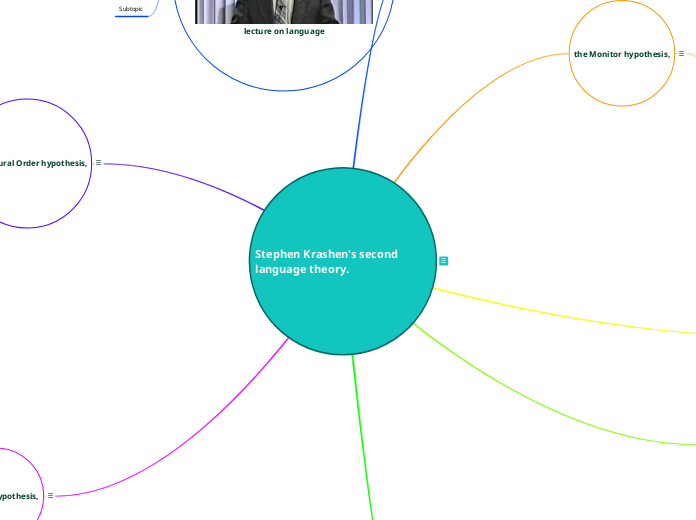jonka Jamy Martinez-Aguirre 3 vuotta sitten
633
Stephen Krashen's second language theory.

jonka Jamy Martinez-Aguirre 3 vuotta sitten
633

Lisää tämän kaltaisia
who is Stephen Krashen?
Stephen D. Krashen is an American linguist, educational researcher and activist,
what is his second language theory about?
Acquisition requires meaningful interaction in the target language - natural communication - in which speakers are concerned not with the form of their utterances but with the messages they are conveying and understanding. ...
what are the names of the 5 hypotheses that are part of his theory?
input hypothesis, the acquisition–learning hypothesis, the monitor hypothesis, the natural order hypothesis and the affective filter hypothesis.
The input hypothesis. This states that learners progress in their knowledge of the language when they comprehend language input that is slightly more advanced than their current level. Krashen called this level of input "i+1", where "i" is the learner's interlanguage and "+1" is the next stage of language acquisition.
The natural order hypothesis is the idea that children learning their first language acquire grammatical structures in a pre-determined, 'natural' order, and that some are acquired earlier than others.
The acquisition-learning hypothesis is a hypothesis that forms part of Stephen Krashen's theory of second language acquisition. It states that there are two independent ways in which we develop our linguistic skills: acquisition and learning. According to Krashen acquisition is more important than learning.
The affective filter hypothesis basically explains that language cannot be learned if a learner is blocking the learning process. In other words, a learner can be mentally prepared to learn, or they might be hindering this process in some way.